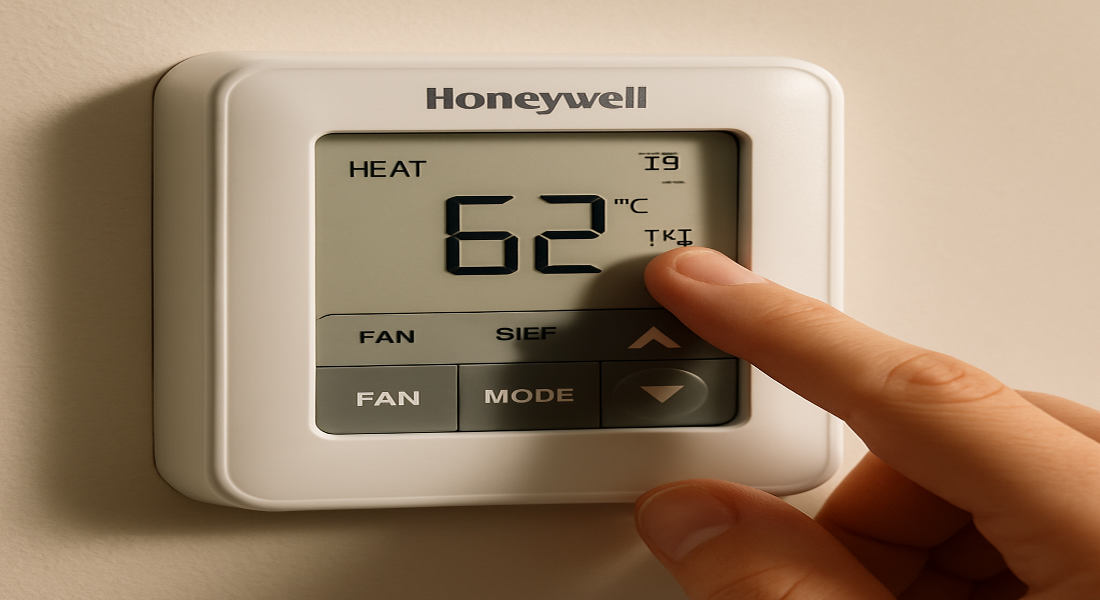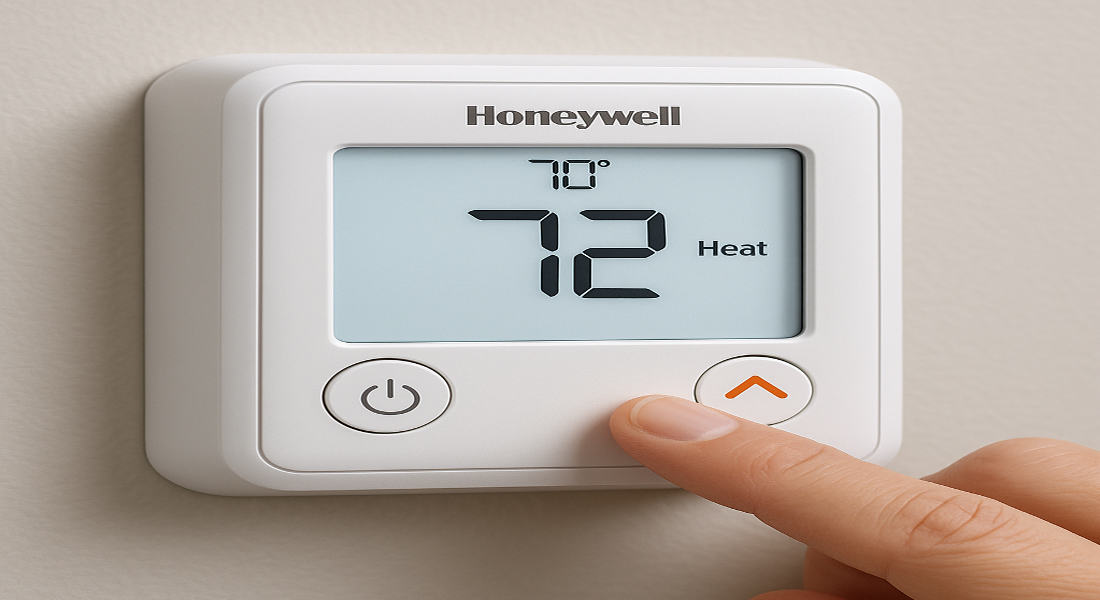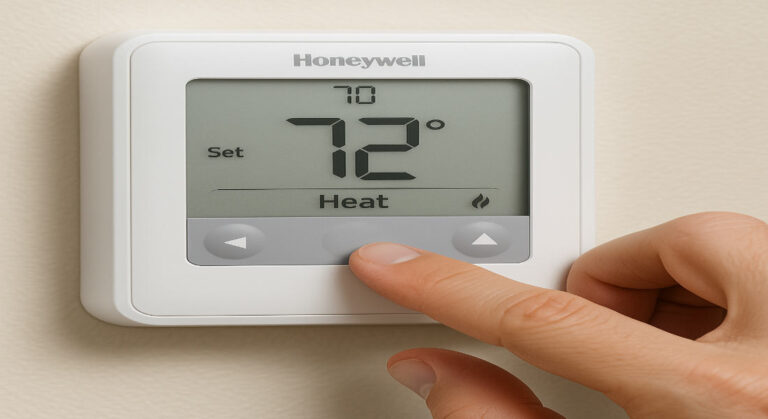To turn on a Honeywell heater in your home, the process generally involves pressing the power button on the heater unit or using the thermostat to activate the heating. To operate a Honeywell ceramic digital tower heater, start by pressing the Power Button, which illuminates the Power Indicator and activates the heater at a constant high setting. You can then select either a low or high heat setting depending on your preference and energy concerns. The heater can operate in two modes: constant heat or thermostat-controlled heating, where you set your desired temperature and the heater cycles on and off accordingly.
Step-by-Step Guide on Turning On a Honeywell Heater
Turning on your Honeywell heater is a straightforward process. First, locate the power switch, usually found on the back or side of the unit. Make sure it’s in the “On” position.
Next, set your desired temperature using the thermostat dial or digital controls. This feature enables you to customise warmth levels for optimal comfort.
If it’s a portable model, plug it into an appropriate electrical outlet. Ensure that there are no obstructions nearby to prevent overheating.
For wall-mounted units, ensure that they are securely installed and connected to power before operating them.
If your heater has additional settings, such as a timer or fan mode, adjust them according to your needs. Once everything is set up correctly, you can enjoy the cozy warmth around your home.
Safety Precautions when Using a Honeywell Heater
Using a Honeywell heater can be a cozy way to warm your home, but safety should always be your top priority. Ensure your heater is placed on a flat, stable surface, away from flammable materials such as curtains and furniture.
Regularly inspect the power cord for any signs of wear or damage. A frayed cord can lead to electrical hazards that you want to avoid at all costs.
Always keep children and pets at a safe distance from the heater while it is in use. It’s easy for them to accidentally knock it over or get too close when they’re playing.
Consider using a unit with built-in safety features, such as tip-over protection and automatic shut-off systems, to prevent overheating. These little things make a significant difference in preventing accidents.
Never leave your heater unattended while it’s running; turn it off before leaving the room or going to sleep. Safety isn’t just important—it’s essential!
You may also read (decoding str essential terms in house real estate).
Common Issues and Troubleshooting for Honeywell Heaters
Honeywell heaters are generally reliable, but issues can arise. One common problem is that the heater does not turn on. Check if it’s plugged in and ensure the power outlet is functioning correctly.
If your heater runs but doesn’t produce warmth, it could be a thermostat issue. Verify that the temperature setting is higher than the current room temperature and adjust accordingly.
Rattling or buzzing sounds may indicate loose parts or debris inside the unit. Turn off the unit and inspect for any obstructions.
Overheating can trigger safety shut-off features, leading to unexpected shutdowns. Ensure there’s adequate airflow around the heater and clean any dust accumulation regularly.
Error codes might appear on digital models. Refer to your user manual for troubleshooting guidance specific to those codes, as they often pinpoint exact issues needing attention.
Tips for Efficiently Using Your Honeywell Heater
To maximize the efficiency of your Honeywell heater, start by placing it in a strategic location. Please keep it away from walls and furniture to promote better airflow.
Adjust the thermostat settings wisely. A lower setting can still keep you comfortable while saving energy costs. Remember to check the temperature regularly.
Using timers or programmable features helps maintain a consistent heating schedule that suits your daily routine. Please set it to warm up before you arrive home, but turn it off when not in use.
Regular maintenance is key. Dust and debris can block vents, so it’s essential to clean them regularly for optimal performance.
Consider using ceiling fans on low speed in reverse mode during winter months. This helps circulate warm air throughout the room more effectively, enhancing comfort without raising the temperature too high.
You may also read (a guide to home etal in real estate explained).
Alternatives to Honeywell Heaters
When considering alternatives to Honeywell heaters, several options are available on the market that may suit your heating needs. Many people turn to brands like Dyson or DeLonghi for their innovative designs and features. These heaters often come equipped with advanced technology, including remote control, intelligent connectivity, and energy-saving modes.
Ceramic heaters are another popular choice. They heat up quickly and offer efficient warmth for small spaces. If you prefer a more traditional approach, oil-filled radiators provide steady heat over more extended periods while being silent in operation.
For those who want a more permanent solution, central heating systems are an excellent option. Although they require upfront installation costs, they efficiently warm an entire house without needing multiple units.
Electric blankets can serve as a cozy alternative during colder months. While not suitable for whole-room heating, they keep you snug while sleeping or lounging around.
Choosing the right heater depends on your specific needs and the environment in which you live. Whether sticking with Honeywell or exploring other brands and types of heating solutions is best suited for keeping your home comfortable this winter season.
You may also read (how to fix dampness in your home with ac on).

